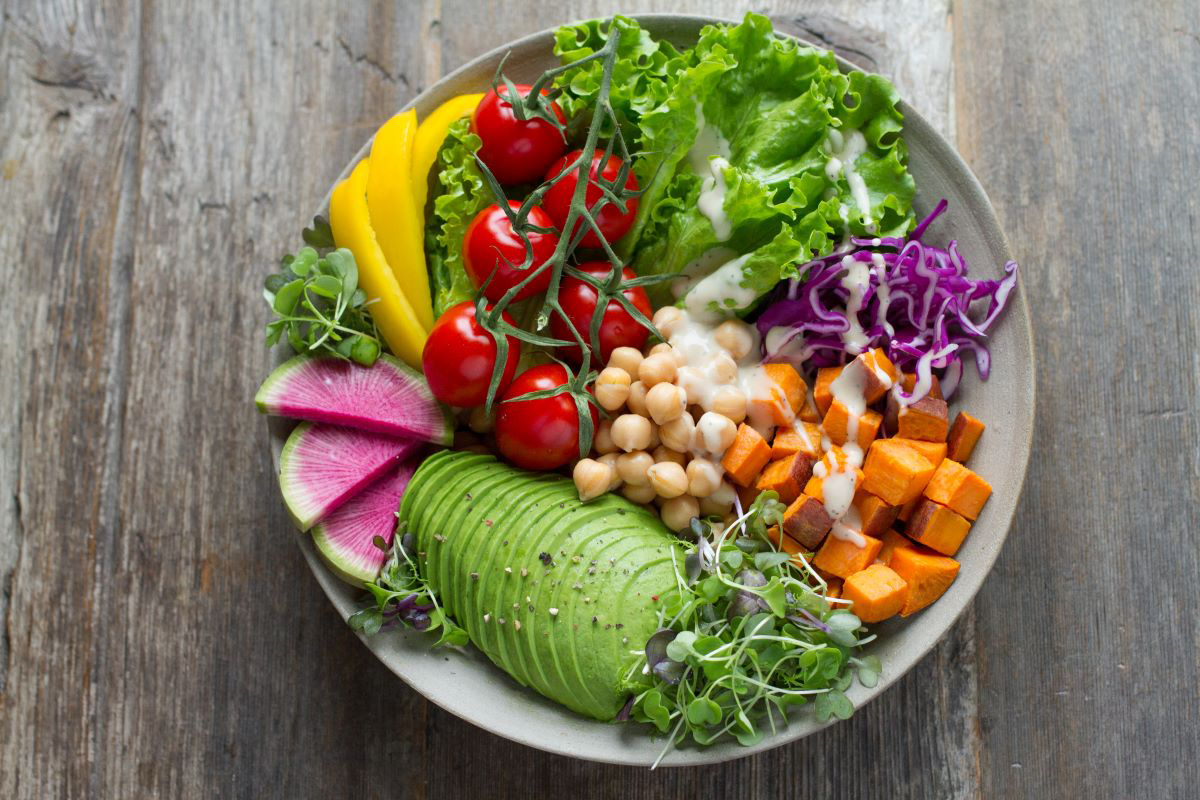
Are you looking for creative ways to boost your grades as an international student?
You can find the tools you’ve been looking for in some of the most unexpected places … including your own kitchen! That’s right – your academic performance is actually linked to what you eat.
Research has found that students learn better when they’re well nourished. In fact, eating nutritious meals can lead to higher grades, better memory and quicker information processing times. Healthy foods provide you with the energy you need to focus and stay alert throughout your studies.
So how can you eat healthily while you study at home? We chatted to certified nutritionist and registered nurse, Lucy Fairlie-Jones, to get some answers. Read on to discover some of Lucy’s most helpful and easy-to-follow tips.
1. Stock up on the staples
When it comes to healthy eating, there are some key staple items you’ll want in your pantry. Lucy’s top five recommendations are:
- Fibre-rich carbs (e.g. wholemeal pasta and flour, brown rice, brown rice noodles)
- Extra-virgin olive oil
- Herbs and spices (e.g. paprika, coriander, curry powder, chilli flakes, oregano, thyme)
- Nuts and seeds (e.g. almonds, walnuts, peanuts, hemp seeds, chia seeds)
- Tinned legumes (e.g. chickpeas, lentils)
That said, everyone’s tastebuds and living situations are different. Adjust your staple food items depending on your likes and dislikes, and what foods are available in your community.
2. Make it easy
For a student with a busy schedule, convenience is key. That’s why you might be tempted to go for fast food options or packaged products. But according to Lucy, there are ways you can make healthy eating just as convenient.
“The trick to eating well is to make it easy,” she shares. “If you have all the ingredients in the fridge, it’s going to be quicker and simpler than takeaway.”
She recommends filling your fridge with healthy ingredients and doing meal preparation a few days in advance. This will help you avoid wasting food and buying takeaway meals. With ready-to-go meals, you’ll be able to eat healthily no matter how hectic your schedule is.
3. Create a routine
“Our bodies love routine,” says Lucy.
With that in mind, why not create one to help you eat healthier at home? While you should definitely experiment with the foods you eat, try to be consistent with your timing.
“Eating at around the same time each day will help to regulate your body clock and hunger hormones,” Lucy explains. “Eating regularly will also keep your blood sugar levels steady, and your mood consistent. That’s good not only for you, but for those around you.”
4. Turn to technology for inspiration
If you have a smartphone, tablet or laptop, you’ve got a world of healthy recipes at your fingertips. It’s only sensible to check them out and try them yourself!
Lucy recommends checking social media sites such as Instagram and Pintrest to find new ideas for healthy eating.
“There are so many great recipes on Instagram and YouTube. Spend an afternoon searching for and taking screenshots of meals you would like to make. Keep a folder on your phone of yummy meals to refer to when you’re in need of inspiration.”
5. Buy healthy snacks
Make sure you have lots of healthy snacks in your home that you can take with you to work or class. For example:
- nuts
- carrot, celery and cucumber sticks with dip
- fruit.
This will help you avoid the more unhealthy snacks like chocolate or chips.
6. Trust your intuition
There’s so much information on healthy eating out there. As a result, it’s sometimes hard to know whose advice to follow. In the end, the answer is simple: listen to yourself first. According to Lucy, everyone is different and nobody knows what your body needs better than you do. A diet that makes one person feel great, can make others sick.
“There are lots of different ways to achieve the right balance of nutrients. No single way is the correct path to take for every individual. I recommend following your intuition,” she says. “If you get hungry between meals, you probably should have a snack or eat larger portions. Some people aren’t hungry in the morning and skip breakfast – and that’s okay.”
Trust your gut to find what works for you. By embracing your intuition, healthy eating will soon become a habit.


